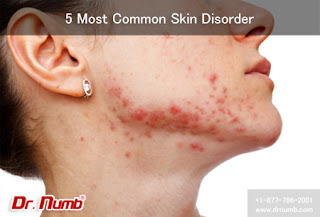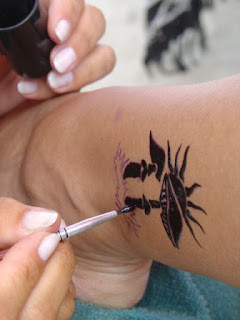Your skin is highly prone to several diseases. Well, you might be aware of few but not all. In order to keep you skin healthy and glowing, it is highly important to first learn about the most common skin conditions. Only then you can prevent you skin from them. Find out some of them here.
If you worry a lot for your skin, then there is nothing new to it. A beautiful, radiant and healthy skin every woman crave for it, isn’t it? A clear and glowing skin makes you more confident. But, it is not an easy task to keep it away from diseases. The unbalanced diet, increasing pollution, hormonal changes and much more contribute to several skin conditions. Some of them are mentioned below, have a look:
Acne: Being one of the most common skin disorders, it causes pimples due to the clogged oil glands. Generally, they will appear on the face, chest, neck, back and shoulder. Though it can exist in several forms, yet the two most common types are whiteheads and blackheads. As far as severity is considered, the nodular and cystic acne get deep in the skin and create more problems. It is common in both, men and women. Basically, it is caused due to hormonal imbalance and heredity plays a great role in the same.
Eczema: Not only it affects adults, but also children suffer from this skin condition. It is widely found in three forms:
• Atopic Dermatitis: Recognized by itchy rashes in the behind the knees and crux of the elbows, this one is most common in the small children. Around 10 to 20 percent children are said to suffer from this long-term genetic disease.
• Allergic Contact Dermatitis: This type of disease occurs due to several environmental factors. It can be due to some fragrances, cosmetic agents and the metals in jewelry. Generally, it is common in adulthood.
• Nummular Dermatitis: It is very itchy and gets severe with time. Hence, if you observe some red and flaky coin-shaped patches of skin, it can be nummular dermatitis. It also makes your skin dry.
Shingles: Generally, it is related to chickenpox. The reason being, it is caused by the same virus which causes chickenpox, i.e. the varicella-zoster virus. This chickenpox virus can remain dormant (not active) in your nervous system for years. Hence, for those who had chickenpox, are at greater risk for shingles. It often results in red, blistered rashes, which might be wrapped around can appear anywhere on your body. They can be painful and accompanied with several symptoms like fever, fatigue and headache. For immediate relief, early treatment with antivirals like oral valacyclovir (Valtrex) is highly recommended. In addition, the senior people and the one with an impaired immune system are more prone to shingles. For them, a vaccine known as Zostavax is advice, especially for people above 60 years.
Sunburn: You are well known to this one. When there is too much exposure to ultraviolet (UV) rays coming from the sun or sunlamps, the skin turns red, hot to the touch, may even peel away and yes, painful. And this is when sunburns occur. Well, it is difficult to say how much time is safe in the sun. Even with the sunscreen protection, long stays can prove to be harmful. However, experts believe that it's better to prevent sunburn than to treat one. Thus, keep yourself protected.
Remember, sunburn can take up to several days or even a week to fade. Hence, drink lots of water, use ibuprofen for swelling, and never pop the blisters. You can use moisturizers, the one with aloe vera or soy are perfect after a cool bath. Also, don’t let it repeat. If you it occurs over and over again, especially in young age, it can increase the risk for skin cancer later in life.
Rosacea: Another common skin condition, which is recognized by chronic swelling of the face, is rosacea. The other symptoms with this disorder are redness, pimples, prominent blood vessels, etc. Although it is common among women, yet men can be affected too. As far as the reason of their occurrence is concerned, it starts with the problems with the immune system, vein problems and environmental issues.




